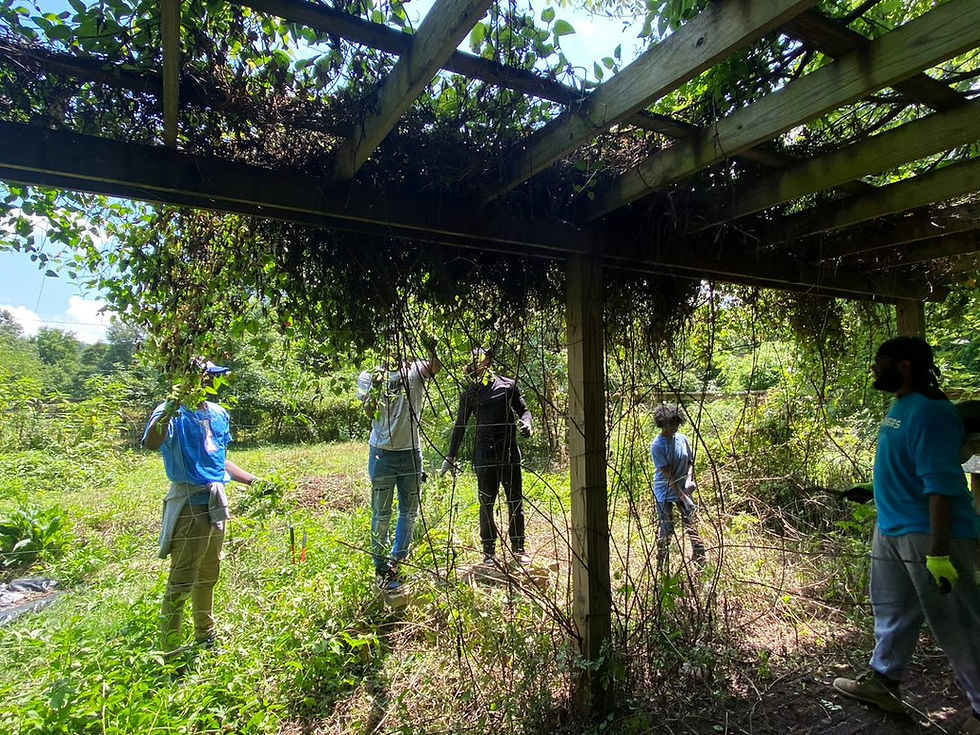Piscataway Park’s Not-So-New EDRR Species
- Accokeek Foundation

- Feb 24, 2023
- 2 min read
The Issue
According to the US Department of the Interior, Early Detection and Rapid Response, or EDRR for short, is a “key tenet of invasive species management, where ‘detection’ is the process of observing and documenting an invasive species, and ‘response’ is the process of reacting to the detection once the organism has been authoritatively identified and response options have been assessed." The longer an invasive species inhabits an area, the more expensive it becomes to remove it – whether that expense is in the form of time, effort, or monetary. In order to save time and money on removal efforts in Piscataway Park, the National Capital Region’s Partnership for Regional Invasive Species Management (NCR-PRISM), which coordinates invasive removal efforts across the DMV, has connected us, the Accokeek Foundation Natural Resources team, to their Invasive Plant Management Team (IPMT) and the Invader Detectives volunteer network, to prevent EDRR species from gaining a foothold in the park.

There are currently over 50 known EDRR plant and animal species in the DMV. Under the guidance of PRISM, Accokeek’s Natural Resources team has identified 4 of those EDRR species here in Piscataway Park: Leatherleaf Mahonia (Berberis bealei), Crowdipper (Pinellia ternata), Trifoliate Orange (Citrus trifoliata), and Castor Aralia (Kalopanax septemlobus). Last fall, we spent 2 months actively removing these plants. Thanks to the help of our volunteers, PRISM, and volunteers from the InvaderDetectives group, we were able to successfully remove or treat four (4) Leatherleaf Mahonia plants, one (1) crowdipper patch, one (1) trifoliate orange, and over 200 Castora Aralia trees.
During the winter while these plants are dormant, Accokeek’s Natural Resources team has been inventorying and mapping them for future removal or treatment during this year’s upcoming active management season.
Ways You Can Help
Join the effort and make a difference! We have management sessions every Friday at 9:30am – 11:30am and focus on the management needs for that week. To sign up, visit: https://bit.ly/InvasiveManagementAF.

Lastly, if you still want to help, but don’t want to leave the comfort of home, that is fantastic as well! Plants do not recognize human boundaries and can spread from yard to yard. We encourage you to walk your property and see if you recognize some of these plants. If you do, do not purchase or plant them. Hand-pull or dig up seedlings, ensuring the roots are completely removed. Mature plants can be removed using a weed wrench or similar tool. If a plant is too large to be removed, it may be cut and systemic herbicide may be applied to the cut surface. If you prefer to keep the plants, or are restrictions on removing them, carefully cut, bag, and throw away fruits in the trash to prevent spread by birds.
For more information on anything mentioned in this blog, please contact the Natural Resources team at rharley@accokeek.org.

